A cuppa and a bit of banter to tackle loneliness
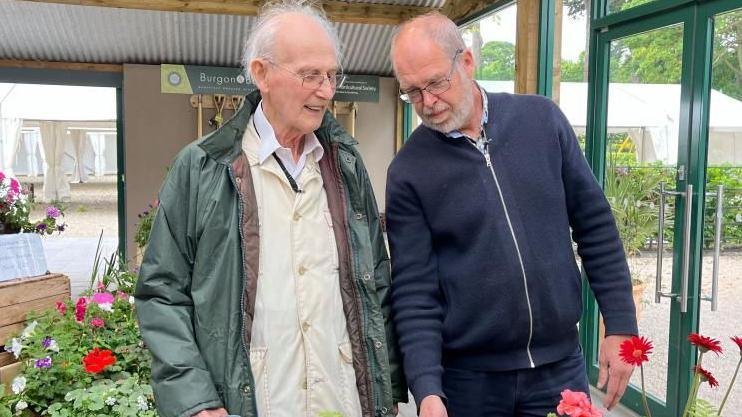
The new scheme matches people with similar interests
- Published
A walk, a cuppa and a bit of banter are being used to tackle loneliness in older people in Northern Ireland.
Age NI has said Northern Ireland's social care system is "broken, invisible and forgotten".
The absence of care packages, longer hospital waiting lists and fewer community services has left the elderly feeling isolated and vulnerable, the older people's charity has said.
It hopes its new service will help keep older people safe and part of their own community.
Through the scheme, Michael Lawson, 90, was matched with Mark Logan, who at 64 is semi-retired.
They meet up two or three times a week, which can include a walk, a visit to a local attraction and definitely a cuppa.
Michael, from Larne, described the match as "very good" as he can share with Mark, who lives in nearby Whitehead, his love for orchestral music, books and the theatre.
Within minutes of meeting them, their bond is obvious.
Likening themselves to Morecambe and Wise, the banter never stops as they chat over coffee with Glenarm Castle in County Antrim in the background.
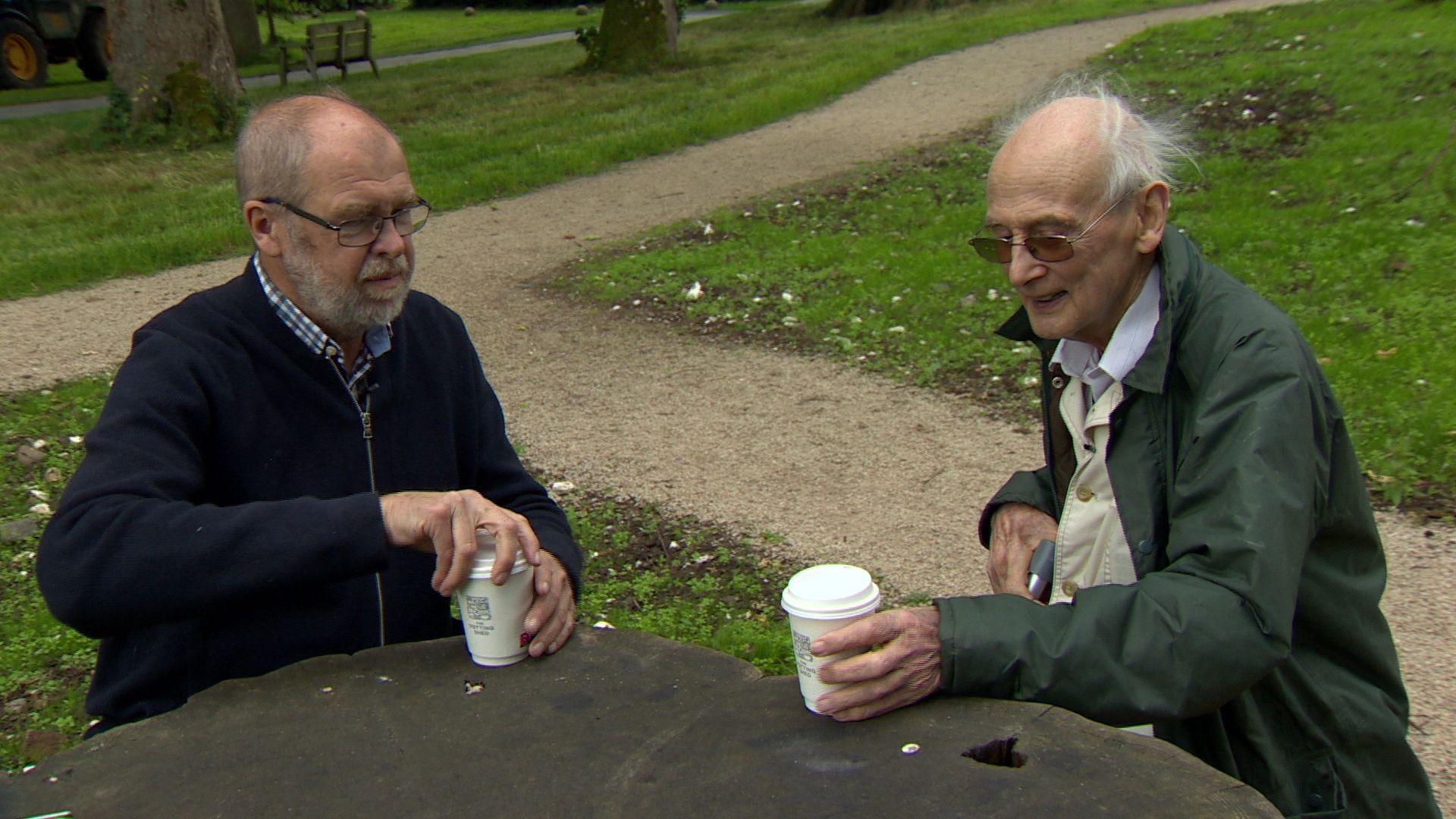
Mark says he would like the service rolled out across Northern Ireland
Charity director Dr Paschal McKeown told BBC News NI that "early intervention is key" so that people are not being helped mid-crisis when they have already reached "breaking point".
It describes 'Shared Lives Carers', external as an innovative, upbeat scheme matching the elderly with a suitable carer.
Mark said he would like the service rolled out across Northern Ireland as "there are lots of Michaels out there needing support", but also lots of other people like him who have time on their hands to give a little back.
"The health service tries to put years back into somebody's life, but I try to put life back into somebody’s years so that they can enjoy life again both in and outside their home," Mark said.
It's people like Michael, who is physically and mentally fit, but who also depends on carers coming into his home every day, that Shared Lives wants to target.
Delivered by Age NI and funded by the Department of Health, the service is about early intervention and supporting older people to remain at home for as long as possible.
The message is that staying connected within the community can help prevent illness, falls, depression and hopefully keep older people out of hospital.
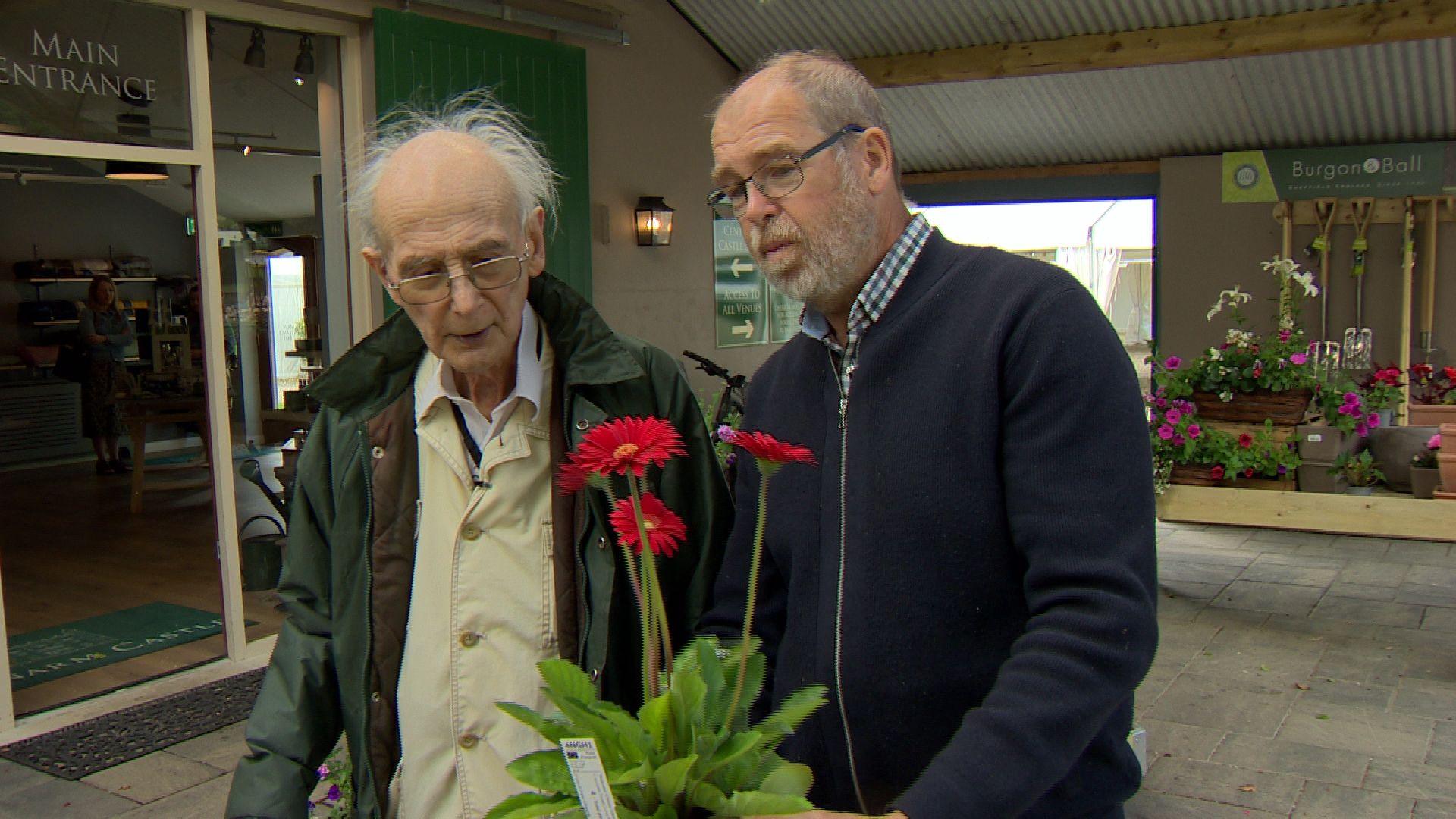
Mark Rogan, right, meets with Michael Lawson up to 3 times a week as part of the Shared Lives scheme
'I would never do that on my own steam'
To be eligible, the older person must be referred to the scheme by a social worker, then a suitable carer is matched from a pool of people who have undergone a security check in advance.
The carer, who is paid, will be expected to share their home, family and community life with the older person for several hours each week.
According to Michael, his social care package - which includes Shared Lives - targeted his individual needs.
He said it means he can stay at home with his collection of books and recordings, but with people watching out for him.
"My carers come each morning and evening to check on me and to make sure I am alright.
"But in between and in my days out with Mark I get to do the fun bits like being here at Glenarm - I would never do that on my own steam," said Michael.
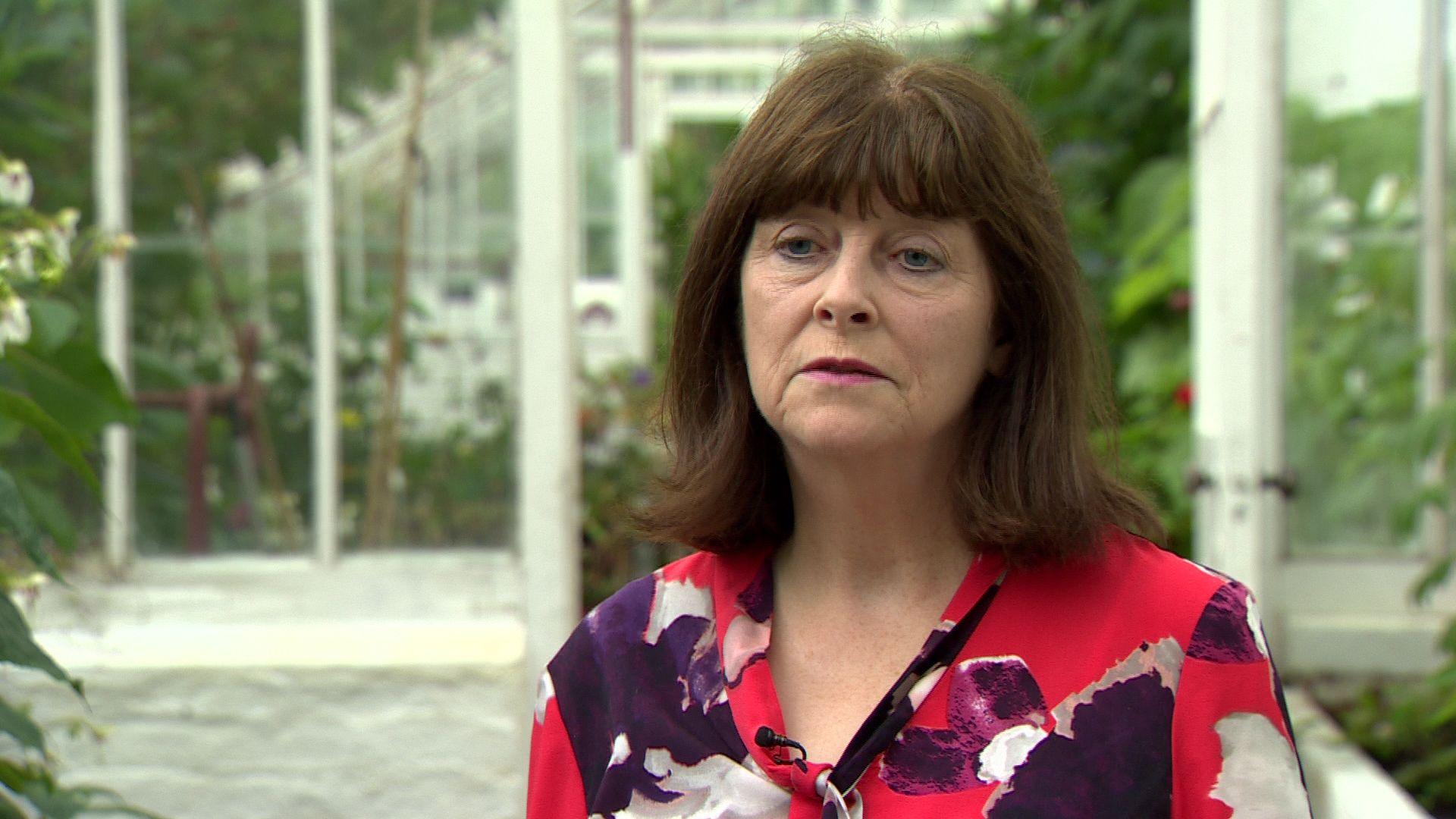
Paschal McKeown says social care is a complex issue
Paschal McKeown from Age NI says people often do not know what social care is until they need it themselves.
"Largely, social care is invisible and often happens behind closed doors in people's homes, in day centres and care homes. So it is much more invisible and can be easily forgotten," she said.
"Social care is complex, because it is about individual people - what they need, and how we deliver personalised care to them in a way that suits them."
How adult social care is shaped and delivered is a conversation that's being had across the UK.
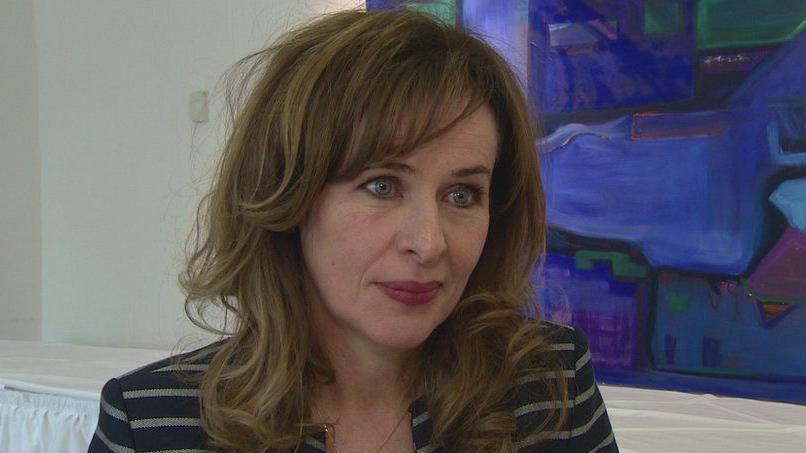
Prof Deirdre Heenan says a UK-wide project will span six years and cost £15m
IMPACT, a national centre which is working to improve adult social care across the four nations, is looking at practical ways to make a difference to services and people's lives.
The overarching feeling is that there is a need to move to a different model and to spend available money differently.
Sharing the Northern Ireland experience with her UK Counterparts, Professor Deirdre Heenan said the £15m project spanning six years was focused on pinpointing evidence of interventions proven to work.
The thrust of this was giving people the support needed to maximise their years of independent living, she said.
"Our evidence is very much based around prevention and early intervention in terms of social care. We know that we can predict who's likely to need assistance in terms of loneliness and rural isolation.
"We know that taking a preventative approach is actually more cost-effective. People want to live independently as long as possible within their own communities, but also want to have a quality of life, which means that life for them is worth living," said Prof Heenan.